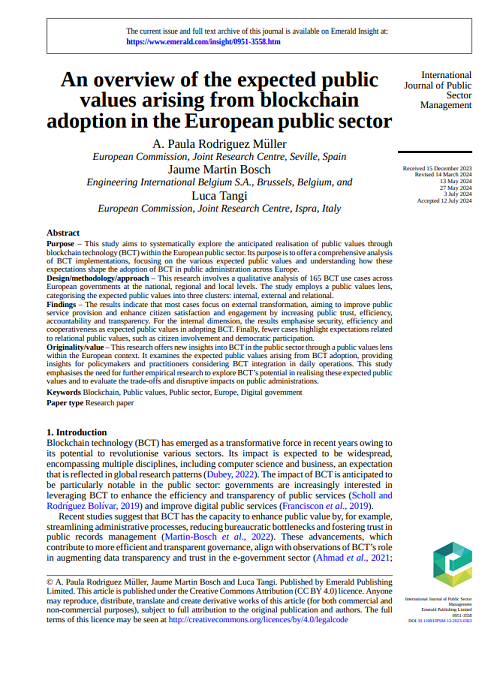
Year: 2024
Authors: RODRIGUEZ MÜLLER A. Paula; MARTIN BOSCH Jaume; TANGI Luca;
Purpose – This study aims to systematically explore the anticipated realisation of public values through blockchain technology (BCT) within the European public sector.Its purpose isto offer a comprehensive analysis of BCT implementations, focusing on the various expected public values and understanding how these expectations shape the adoption of BCT in public administration across Europe.
Design/methodology/approach – This research involves a qualitative analysis of 165 BCT use cases across European governments at the national, regional and local levels. The study employs a public values lens, categorising the expected public values into three clusters: internal, external and relational.
Findings – The results indicate that most cases focus on external transformation, aiming to improve public service provision and enhance citizen satisfaction and engagement by increasing public trust, efficiency, accountability and transparency. For the internal dimension, the results emphasise security, efficiency and cooperativeness as expected public values in adopting BCT. Finally, fewer cases highlight expectations related to relational public values, such as citizen involvement and democratic participation.
Originality/value – Thisresearch offers new insightsinto BCT in the public sector through a public valueslens within the European context. It examines the expected public values arising from BCT adoption, providing insights for policymakers and practitioners considering BCT integration in daily operations. This study emphasisesthe need for further empirical research to explore BCT’s potential in realising these expected public values and to evaluate the trade-offs and disruptive impacts on public administrations

